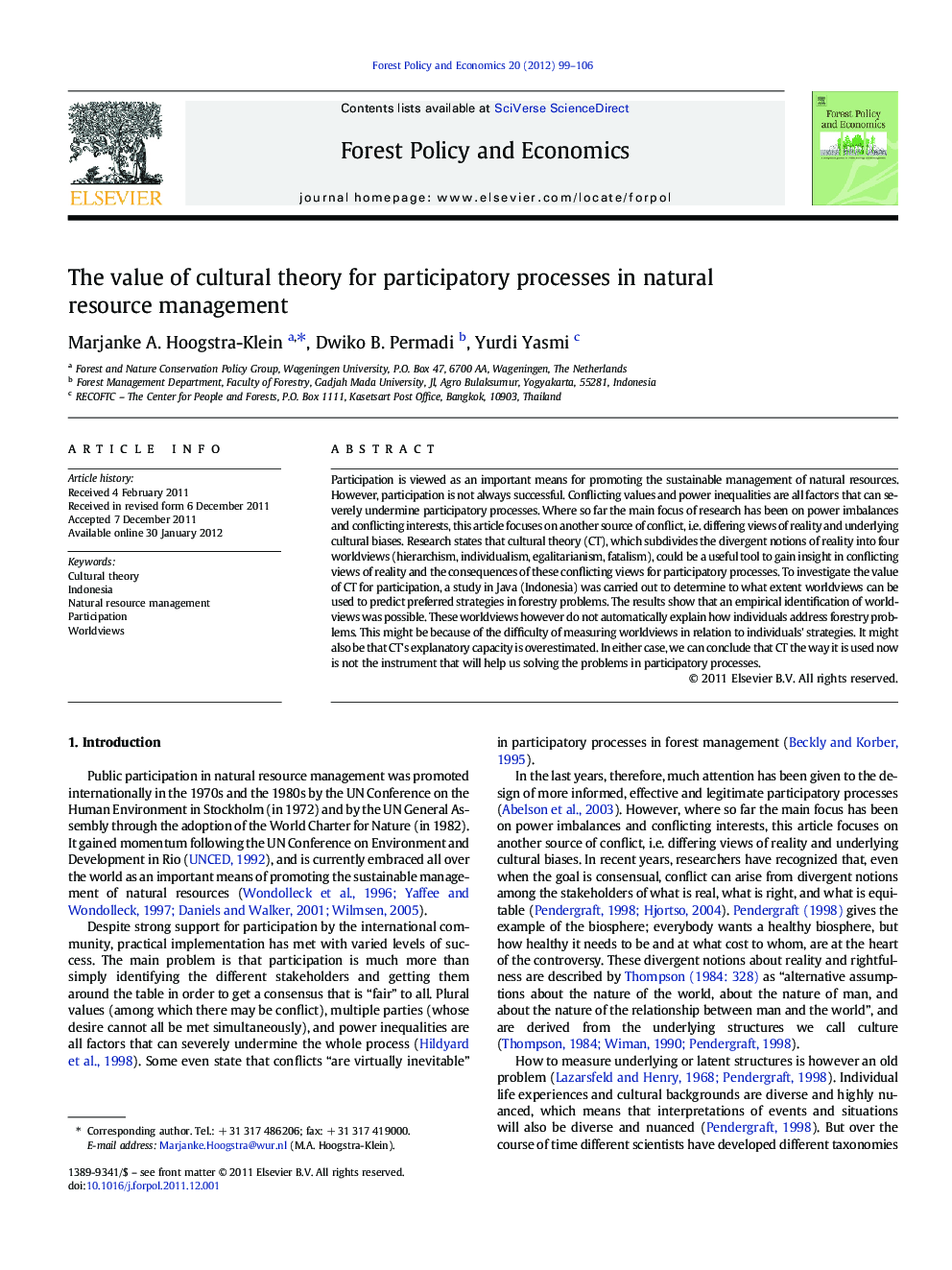| کد مقاله | کد نشریه | سال انتشار | مقاله انگلیسی | نسخه تمام متن |
|---|---|---|---|---|
| 91133 | 159746 | 2012 | 8 صفحه PDF | دانلود رایگان |

Participation is viewed as an important means for promoting the sustainable management of natural resources. However, participation is not always successful. Conflicting values and power inequalities are all factors that can severely undermine participatory processes. Where so far the main focus of research has been on power imbalances and conflicting interests, this article focuses on another source of conflict, i.e. differing views of reality and underlying cultural biases. Research states that cultural theory (CT), which subdivides the divergent notions of reality into four worldviews (hierarchism, individualism, egalitarianism, fatalism), could be a useful tool to gain insight in conflicting views of reality and the consequences of these conflicting views for participatory processes. To investigate the value of CT for participation, a study in Java (Indonesia) was carried out to determine to what extent worldviews can be used to predict preferred strategies in forestry problems. The results show that an empirical identification of worldviews was possible. These worldviews however do not automatically explain how individuals address forestry problems. This might be because of the difficulty of measuring worldviews in relation to individuals' strategies. It might also be that CT's explanatory capacity is overestimated. In either case, we can conclude that CT the way it is used now is not the instrument that will help us solving the problems in participatory processes.
► We investigated the value of cultural theory (CT) as a tool for participation in the sustainable management of natural resources.
► The results showed that cultural theory was useful to empirically identify the worldviews of individuals.
► These worldviews did however not explain the way how forestry problems.
► The explanatory capacity of cultural theory for participatory processes is therefore limited.
Journal: Forest Policy and Economics - Volume 20, July 2012, Pages 99–106